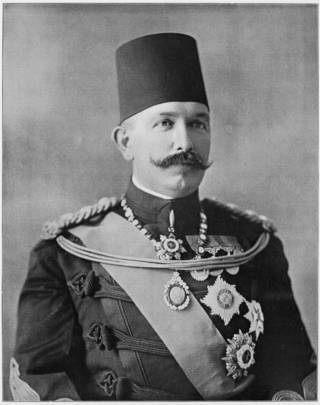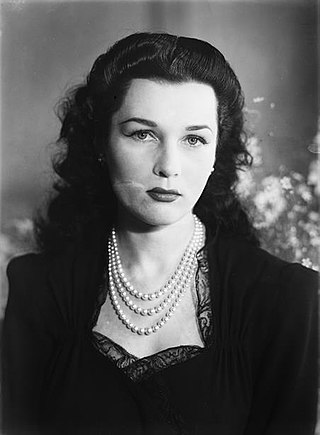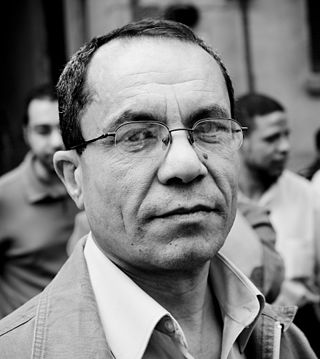See also
Topics referred to by the same term
This disambiguation page lists articles about people with the same name. If an internal link led you here, you may wish to change the link to point directly to the intended article.
Abbas I may refer to:

ABBA are a Swedish supergroup formed in Stockholm in 1972 by Agnetha Fältskog, Björn Ulvaeus, Benny Andersson, and Anni-Frid Lyngstad. The group's name is an acronym of the first letters of their first names arranged as a palindrome. They are one of the most popular and successful musical groups of all time, and are one of the best-selling music acts in the history of popular music, topping the charts worldwide from 1974 to 1982, and in 2022.

Abbas Helmy II was the last Khedive of Egypt and the Sudan, ruling from 8 January 1892 to 19 December 1914. In 1914, after the Ottoman Empire joined the Central Powers in World War I, the nationalist Khedive was removed by the British, then ruling Egypt, in favour of his more pro-British uncle, Hussein Kamel, marking the de jure end of Egypt's four-century era as a province of the Ottoman Empire, which had begun in 1517.

Fawzia of Egypt, also known as Fawzia Pahlavi or Fawzia Chirine, was an Egyptian princess who became Queen of Iran as the first wife of Mohammad Reza Pahlavi, Shah of Iran.
Abbas II may refer to:
Abū al-ʿAbbās is an Arabic name that may refer to:
Muhammad Abbas, Mohammad Abbas or Mohammed Abbas may refer to:
Abbas Pasha may refer to:

The Desert Fathers or Desert Monks were early Christian hermits and ascetics, who lived primarily in the Scetes desert of the Roman province of Egypt, beginning around the third century AD. The Apophthegmata Patrum is a collection of the wisdom of some of the early desert monks and nuns, in print as Sayings of the Desert Fathers. The first Desert Father was Paul of Thebes, and the most well known was Anthony the Great, who moved to the desert in AD 270–271 and became known as both the father and founder of desert monasticism. By the time Anthony had died in AD 356, thousands of monks and nuns had been drawn to living in the desert following Anthony's example, leading his biographer, Athanasius of Alexandria, to write that "the desert had become a city." The Desert Fathers had a major influence on the development of Christianity.
Pope Mark VII of Alexandria (Abba Marcos VII), 106th Pope of Alexandria & Patriarch of the See of St. Mark. Pope Mark VII was born in the city of Klosna, in the district of El Bahnasa, and his lay name was Simeon. He joined the Monastery of Saint Anthony at a young age, then moved to the Monastery of Saint Paul the Anchorite, where he became a monk and was ordained a priest. When Pope John XVII departed, he was chosen to succeed him. Pope Mark VII was ordained Pope and Patriarch of Alexandria on Sunday, 24 Pashons, 1461 A.M. (30 May 1745 AD) on the day of the feast of the entry of Christ to Egypt.

Tamer Hosny Sherif Abbas Farghaly, known by his artistic name Tamer Hosny, is an Egyptian singer, actor, composer, director and songwriter. He first came to public attention when he appeared on mixed tapes with other Egyptian artists. Hosny launched his solo career with his 2004 album Hob, becoming a successful singer of romantic music and was given the nickname "King of the Generation" by his fans.

Waleed, also spelt as Walid, Oualid, or Velid, is an Arabic-language masculine given name meaning newborn child.
The Fatah–Hamas conflict is an ongoing political and strategic conflict between Fatah and Hamas, the two main Palestinian political parties in the Palestinian territories, leading to the Hamas takeover of the Gaza Strip in June 2007. The reconciliation process and unification of Hamas and Fatah administrations remains unfinalized and the situation is deemed a frozen conflict.

Wael Abbas Bilal is an internationally renowned Egyptian journalist, blogger, and human rights activist, who blogs at Misr Digital. He reported an incident of mob harassment of women, and broadcast several videos of police brutality. His actions led to the conviction of police for torture, but he has been harassed by the Egyptian government.
Abbas Hilmi may refer to:
Akkad may refer to:

Abbas Helmy I of Egypt was the Wāli of Egypt and Sudan. He was a son of Tusun Pasha, the younger son of Muhammad Ali Pasha whom he succeeded as ruler of Egypt and Sudan. The Chambers Biographical Dictionary says of him: "[b]igoted and sensual, he did much to undo the progress made under Muhammad Ali."
ʿAbbes is an old Arabic name that means "Lion". The name traces back to Al-‘Abbas ibn ‘Abd al-Muttalib in 536 CE and Abbas ibn Ali, a son of Ali ibn Abi Talib, who participated in the battle of Karbala alongside his brother Husayn ibn Ali. Abbas ibn Ali is revered by Muslims, some of whom are named Abbas in remembrance and tribute to him. There is an Arabian tribe of the same name, the Banu Abbas.
Abo is an Arabic and Hebrew male name and a variant form of Abbas. It is from Abbas that Abo takes its meaning of stern or somber father. In Arabic, Abbas is a symbolic name referring to the lion, the king of beasts.

Kamal Abbas is General Coordinator of the Center for Trade Unions and Workers Services (CTUWS), an activist group for independent unions in Egypt. Involved in activism for over 20 years, Abbas has been active in mobilizing worker support during the Egyptian Revolution of 2011 and its aftermath. His approach emphasizes peaceful strikes and rallies accompanied by demands for better wages and working conditions, as well as more regular elections for union officials, and an independent union system.

The Achille Lauro hijacking took place on 7 October 1985, when the Italian ocean liner MS Achille Lauro was hijacked by four men representing the Palestine Liberation Front (PLF) off the coast of Egypt, as she was sailing from Alexandria to Ashdod, Israel. A 69-year-old Jewish American man in a wheelchair, Leon Klinghoffer, was murdered by the hijackers and thrown overboard. The hijacking sparked the "Sigonella Crisis".